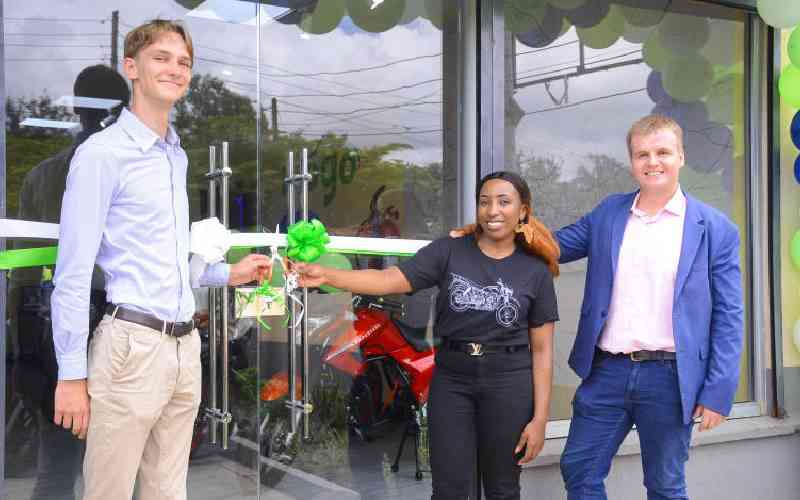×
The Standard e-Paper
Smart Minds Choose Us

Asset financier Mogo has invested Sh1 billion in funding injected by the US International Development Corporation (IDFC) to finance electric boda bodas and tuk-tuks at affordable interest rates.
The firm, which has lent out Sh20 billion for boda boda and motor vehicle loans and provided financial products to more than 120,000 Kenyans over the past five years, has announced plans to direct the injected funds towards financing EVs to increase the adoption of e-bikes and tuk-tuks in the country.







